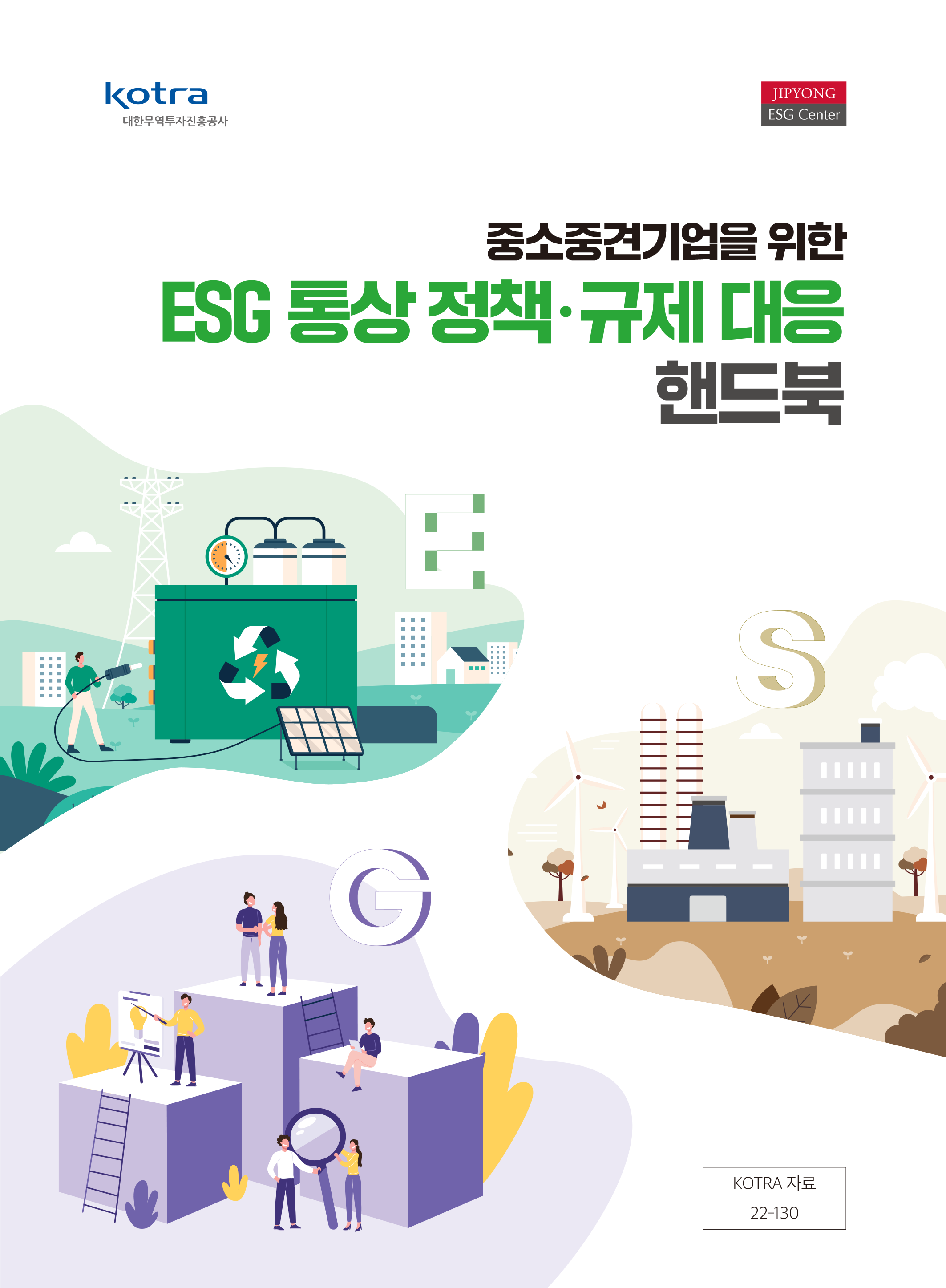The Jipyong ESG Center has jointly published with the Korea Trade-Investment Promotion Agency (“KOTRA”) the ‘ESG Trade Policy and Regulation Response Handbook for Small and Medium-sized Enterprises.’ The Jipyong ESG Center and KOTRA are collaborating in research, seminars, and education on global regulatory trends to help domestic small and medium-sized companies adopt ESG management and gain global competitiveness. The handbook, which is a compilation of Q&A from 'Global ESG Trade Policy and Regulation Trends' and 'ESG Seminar with Local SMEs' promoted from last year to this year, has been published to help Korean companies with an accurate understanding of ESG policies and regulations.
In the handbook, the top 12 regulations related to ESG-related trade-linked sanctions, supply chain due diligence, disclosure of corporate information, and product information in which the companies should pay attention to are well organized. Furthermore, management items and checkpoints for each major industry (i.e., automotive, chemical, electrical/electronic, textile/clothing) for ESG management of SMEs are also covered. In its appendix, the support projects by KOTRA and various information sites that are useful to know are also included. The handbook can be downloaded free of charge from the KOTRA Global Economic Information Dream and the ESG Data Room on the Jipyong website (Download Link)
The Jipyong ESG Center is a top-tier sustainability management advisory organization in Korea that provides integrated advice on policy research, management diagnosis and analysis, strategy and operation, compliance, and regulatory response. Jipyong, a law firm with the largest number of master’s and doctoral-level consultants with various ESG experiences and expertise, will further strengthen and serve as a think-tank for non-financial risks and management to enhance global and industrial competitiveness through ESG management of Korean companies facing difficult business environments in the future.
[Photo]

In the handbook, the top 12 regulations related to ESG-related trade-linked sanctions, supply chain due diligence, disclosure of corporate information, and product information in which the companies should pay attention to are well organized. Furthermore, management items and checkpoints for each major industry (i.e., automotive, chemical, electrical/electronic, textile/clothing) for ESG management of SMEs are also covered. In its appendix, the support projects by KOTRA and various information sites that are useful to know are also included. The handbook can be downloaded free of charge from the KOTRA Global Economic Information Dream and the ESG Data Room on the Jipyong website (Download Link)
The Jipyong ESG Center is a top-tier sustainability management advisory organization in Korea that provides integrated advice on policy research, management diagnosis and analysis, strategy and operation, compliance, and regulatory response. Jipyong, a law firm with the largest number of master’s and doctoral-level consultants with various ESG experiences and expertise, will further strengthen and serve as a think-tank for non-financial risks and management to enhance global and industrial competitiveness through ESG management of Korean companies facing difficult business environments in the future.
[Photo]

KOREA LEGAL INSIGHT
Seoul Bankruptcy Court Holds Seminar Introducing New Corporate Restructuring Models: Pre-ARS and Hybrid Restructuring
2025.06.02


